Surpassing the language and form of a normal Testament, the issues written about Party building by President Ho Chi Minh in his Testament have reached a profound theoretical level.

Not only was he the founder of the Communist Party of Vietnam , President Ho Chi Minh also built and trained our Party to become a steadfast, clean, and strong Party.
The issue of Party building is also one of the important contents that President Ho Chi Minh mentioned first in his Testament.
Surpassing the language and form of a normal Testament, the issues written about Party building by President Ho Chi Minh in his Testament have reached a profound theoretical level.
“We must preserve the unity and solidarity of the Party like the pupil of our eye.”
President Ho Chi Minh began writing his Testament in 1965 and revised it many times (in 1966, 1967) and supplemented it (in 1968, 1969). But regardless of revisions or supplements to complete it, the issue of Party building was always given top priority by Uncle Ho.
In his Testament published in 1969, Uncle Ho devoted the first part (after the introduction to the Testament) to "talking about the Party."
First, Uncle Ho affirmed the position and role of the Party: "Our Party has united, organized and led our people to enthusiastically fight from one victory to another."
This is a profound theoretical and practical summary of the position and role of the Party. Reality shows that, since its establishment, the Party has led our people to carry out the August Revolution successfully, establishing the first worker-peasant state in the history of the nation.
Next, the Party led the people to wage a heroic resistance war against the invading French colonialists.
And up until the time he wrote his Testament, the Party led the People to carry out two strategic tasks: building socialism in the North and fighting to liberate the South and unify the country.
According to President Ho Chi Minh, the core factor that brings success in the organization and leadership of the Party is "Thanks to close solidarity, wholeheartedly serving the class, serving the people, serving the Fatherland."
This is the key factor that helps the Party to be able to organize, lead, and gather the masses, promoting the strength of the entire nation in the revolutionary cause.
Therefore, he advised: "Comrades from the Central Committee to the Party cells must preserve the unity and consensus of the Party as they preserve the pupil of their eye."

As the founder of the Communist Party of Vietnam, President Ho Chi Minh understood better than anyone else that unity within the Party is the basis of national unity and international unity, the strength of the Party and the source of all victories. Only by preserving unity within the Party can the Party be clear-sighted in organizing and leading the People, and in determining the revolutionary path.
On the contrary, if the Party cannot maintain unity, it is like an eye with a damaged pupil, like a blind person who cannot see the way. That is the profound implication hidden in Uncle Ho's comparison: "Preserving unity and consensus within the Party is like protecting the pupil of one's eye."
Along with pointing out the great role of solidarity, President Ho Chi Minh also proposed ways and methods to achieve solidarity and unanimity within the Party.
He wrote: “In the Party, practicing democracy widely, regularly and seriously, self-criticism and criticism is the best way to consolidate and develop the solidarity and unity of the Party. There must be comradely love for one another.”
This is not only a summary and generalization with profound theoretical significance but also a manifestation of the intellectual height of President Ho Chi Minh.
During his lifetime, President Ho Chi Minh once pointed out the relationship between democracy and solidarity within the Party: Without democracy, there can be no solidarity, especially democracy within the Party. Because our Party holds power, without democracy within the Party, how can there be democracy among the people? Thanks to democracy, our Party has aroused and promoted the highest intelligence, improved its leadership capacity and fighting strength. Thanks to democracy within the Party, it has overcome factionalism, localism, bureaucracy, arrogance, authoritarianism, and distance from the masses. Therefore, "widely practicing democracy" is extremely necessary within the Party.
Besides, criticism and self-criticism are also a principle in Party activities, a law of development and a sharp weapon of the Party. Criticism and self-criticism not only correct shortcomings in the Party, make Party members progress and become stronger, but also affirm the Party's true integrity. When giving instructions on implementing criticism and self-criticism in the Party, President Ho Chi Minh noted that it must be done "regularly and seriously."
Because, if not done regularly, sometimes done, sometimes not, then criticism and self-criticism will not be timely; on the other hand, if done carelessly, perfunctorily, "peace is precious", it will not be effective, even counterproductive.
He also did not forget to remind cadres and party members "to love one another."
Because on the basis of comradely love and affection for one another, we can practice “broad democracy” and “regular and serious self-criticism and criticism.” Without comradely love and affection for one another, it will lead to formal democracy and unserious self-criticism and criticism.
"Every party member and cadre must truly imbue revolutionary ethics"
To create a united and strong collective requires the efforts of each individual. Therefore, President Ho Chi Minh required: “Each party member and cadre must be truly imbued with revolutionary ethics, truly industrious, frugal, honest, impartial and selfless.”
During his lifetime, President Ho Chi Minh taught that revolutionary ethics is the "foundation" and "root" of a cadre. Because with revolutionary ethics, when facing difficulties, hardships, and failures, one does not become afraid, timid, or retreat; with revolutionary ethics, when facing favorable conditions and successes, one still maintains the spirit of "worrying before the world, being happy after the world"; worrying about completing tasks well.... It can be said that revolutionary ethics is the foundation that helps party members and cadres educate, persuade, and lead the masses.
To gain people's respect and obedience, cadres and party members must be "truly thrifty, honest, impartial and selfless."

Previously, in the book "Diligence, Thrift, Integrity" Gathered by Uncle Ho on June 20, 1949, he fully presented the contents of the "four virtues."
Can means to be diligent, hard-working, and persistent; kiem means to be frugal, not extravagant, not wasteful, not messy; liem means to be clean, not greedy; chinh nghia means to be straightforward and upright...
Uncle Ho emphasized: “A nation that knows how to be industrious, thrifty, and honest is a nation rich in material things, strong in spirit, and a civilized and progressive nation”; “Diligence, thrift, and honesty are the roots of righteousness. But a tree needs roots, branches, leaves, flowers, and fruits to be complete. A person must be industrious, thrifty, and honest, but also upright, to be a complete person.
In the last sentence of the part about the Party in the Testament, Uncle Ho advised: "We must keep our Party truly clean, worthy of being the leader and truly loyal servant of the people."
During his lifetime, President Ho Chi Minh advised cadres and party members: “In front of the masses, we cannot be loved by them just by writing the word “communist” on our foreheads. The masses only respect those with character and morality. To guide the people, we must set an example for them to follow.”
President Ho Chi Minh also reminded that, in studying, working, working as well as in the daily life of each person in our society in any revolutionary period, if dishonesty, injustice, waste, embezzlement, laziness, irresponsibility, personal gain, selfishness for one's own benefit at the expense of others... still lurk somewhere, then that is an "internal enemy" of unpredictable danger.
In revising his Will in May 1968, when mentioning the work that must be done immediately after the victory of the people's resistance war against the US to save the country, Uncle Ho advised: "The first thing that must be done is to rectify the Party, to make every Party member, every Youth Union member, every Party cell strive to fulfill the tasks assigned by the Party, wholeheartedly serving the people. If we can do that, no matter how big or difficult the task is, we will definitely win."
Continuously building and rectifying the Party according to President Ho Chi Minh's Testament
President Ho Chi Minh has been gone for more than half a century, but his advice on Party building and rectification still holds theoretical and practical value. Implementing his Testament, over the past 55 years, our Party has continuously taken care of building and rectifying itself politically, ideologically, organizationally and morally.

The 6th Party Congress (December 1986) was a serious self-criticism and criticism, a major rectification to come up with a plan for innovation. The 3rd Central Conference, 7th term (June 1992) on innovation and Party rectification made an important contribution to the strong development of innovation to overcome the challenge of the collapse of the socialist model in Eastern Europe and the Soviet Union.
The 4th Central Conference, 11th tenure issued a Resolution on Some Urgent Issues on Party Building Today; the 4th Central Conference, 12th tenure continued to issue a Resolution on strengthening Party building and rectification; preventing and repelling the degradation of political ideology, ethics, lifestyle, and manifestations of "self-evolution" and "self-transformation" within the Party, clearly demonstrating political determination to restore discipline within the Party and build a truly clean and strong Party.
And at the 4th Central Conference of the 13th tenure, the Party Central Committee issued a Conclusion on promoting Party building and rectification and the political system; resolutely preventing, repelling, and strictly handling cadres and Party members who have degraded in political ideology, ethics, lifestyle, and manifestations of "self-evolution" and "self-transformation" within the Party; and new Regulations on what Party members are not allowed to do.
Through that, our Party continues to affirm the mettle and intelligence of the entire Party, people and army to successfully carry out the renovation process, turning Vietnam from an underdeveloped country into a developing country with average income, people's lives are increasingly prosperous and happy, prestige and position in the international arena are increasingly enhanced.
Besides the results and achievements, the work of Party building and rectification still has limitations: A number of cadres and Party members, including leaders and managers, have not yet raised their sense of responsibility, lacked exemplary conduct, and had reduced fighting spirit, especially falling into individualism, violating Party discipline, and violating State laws...
Meanwhile, hostile and reactionary forces have never given up their plot to overthrow the leadership role of the Communist Party and the socialist regime in Vietnam; they are vigorously carrying out the strategy of "peaceful evolution" with increasingly sophisticated, cunning, and vicious methods and tricks; they are thoroughly taking advantage of comprehensive and deep international integration to infiltrate internally, promote elements of "self-evolution" and "self-transformation" in order to disintegrate our Party and regime from within.
Faced with the world and domestic situation that is creating both favorable and challenging conditions, our entire Party continues to firmly stand, fight, prevent and push back the degradation of political ideology, ethics and lifestyle; prevent and push back the manifestations of "self-evolution" and "self-transformation."
At the same time, we must intensify the fight to defeat all plots and peaceful evolution activities of hostile forces; proactively prevent and refute distorted, erroneous, and hostile information and viewpoints; strengthen the training of revolutionary ethics, fight against individualism, opportunism, and pragmatism to enhance spirit and responsibility, and lead the country to successfully carry out the cause of industrialization, modernization, and international integration.
“Particularly important is to attach importance to and constantly strengthen solidarity and unity within the Party, great national solidarity, and the close bond between the Party and the People. From the Central Committee to the Party cell, each cadre and Party member must strive to “preserve solidarity and unity within the Party as if preserving the pupil of their eye”; the Party must mobilize the entire intelligence and strength of the entire nation and the strength of the times in the cause of building and defending the Socialist Republic of Vietnam.”
“We believe that under the leadership of the glorious Communist Party of Vietnam; closely combining true patriotism with the fine traditions, spirit and quintessence of the nation, constantly absorbing the quintessence of human culture; with the mettle and steadfast revolutionary ideals of the contingent of cadres and party members; with the wholehearted trust and support of the people, the cause of national renewal will certainly achieve great victory, our Fatherland will become increasingly prosperous, our people will become increasingly happy and prosperous, our country will become increasingly prosperous, powerful, steadily moving towards socialism, successfully implementing the strategic goals set forth by the 13th National Party Congress and the testament of the great President Ho Chi Minh, which is also the aspiration of the entire nation: 'Our entire Party and people will unite and strive to build a peaceful, unified, independent, democratic and prosperous Vietnam, making a worthy contribution to the world revolutionary cause'”./.
Source: https://baolangson.vn/van-de-xay-dung-dang-trong-di-chuc-cua-chu-cich-ho-chi-minh-5019226.html
















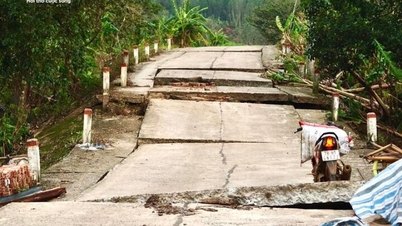
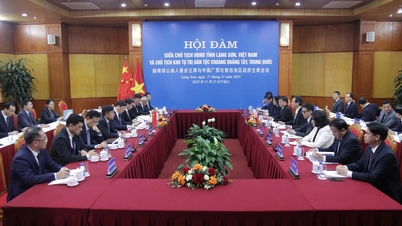

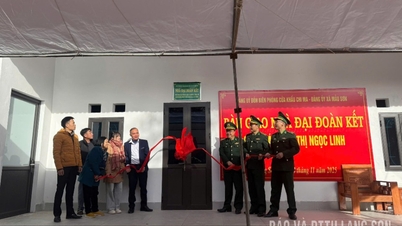
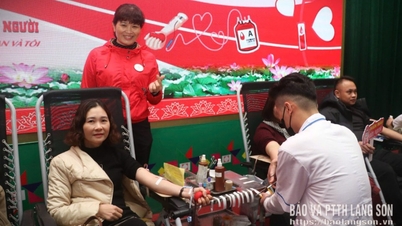





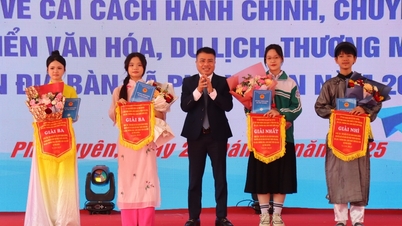
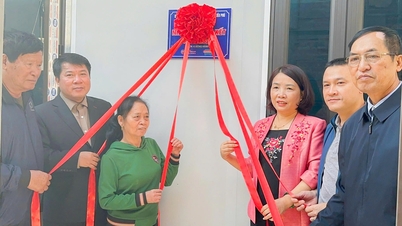
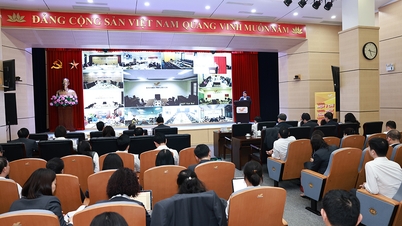

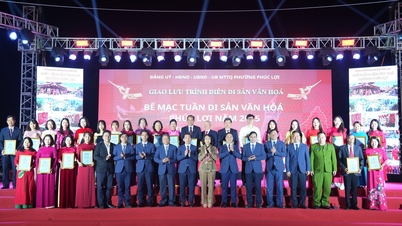





















































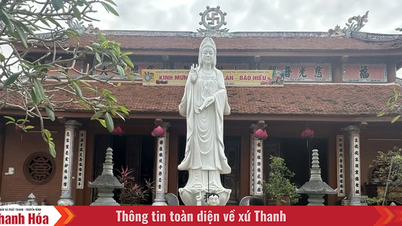

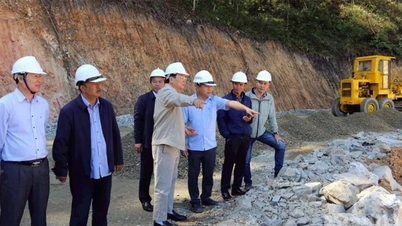

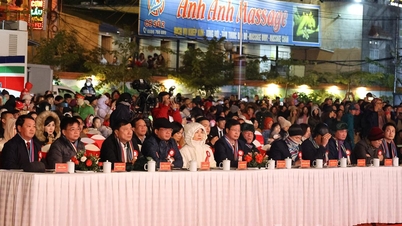


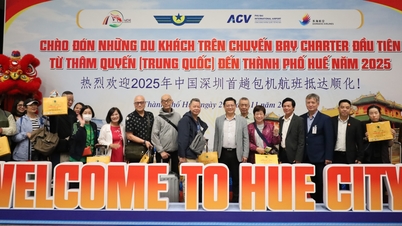
















Comment (0)